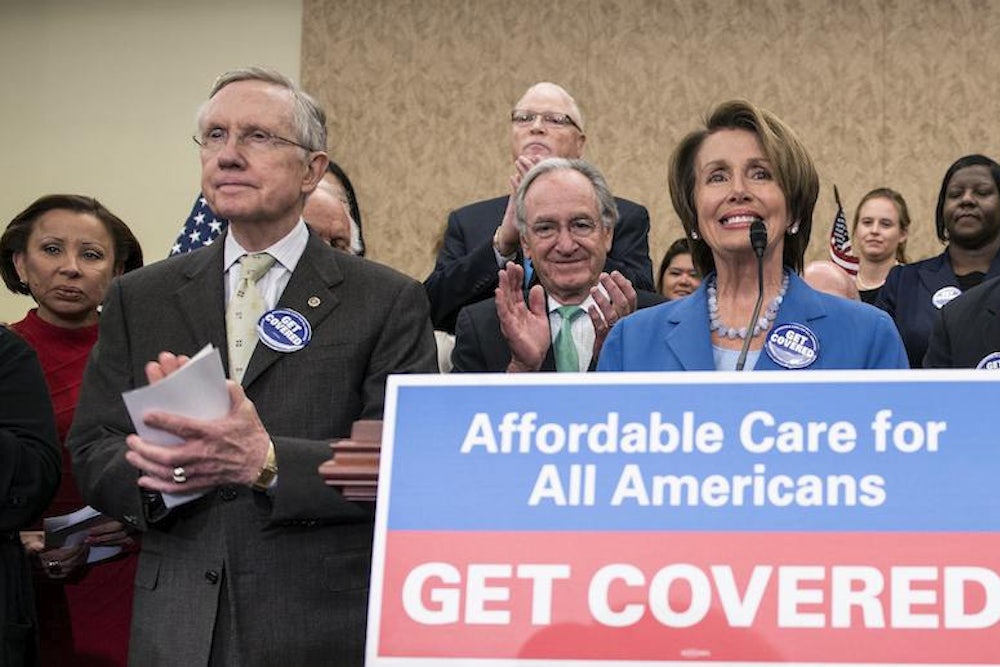A little while ago, Senate Majority Leader Harry Reid arrived at an event on Capitol Hill and got a huge applause from some fellow Democrats. That probably doesn’t seem surprising. Reid has always been popular with members of his caucus. But this time it wasn’t just Senate Democrats cheering him. It was House Democrats, too. “Three cheers for Harry Reid,” one House Democrat said. “In the House, we love you,” said another.
I honestly have no idea how the political standoff over spending and Obamacare is going to turn out. But watching this event today gave me one reason to think Democrats may be in even stronger position than most people realize: They are totally united.
The event I saw, which was a celebration of the Affordable Care Act, was a perfect illustration of this. Back in 2009 and early 2010, the White House, House Democrats and Senate Democrats were frequently at odds over both policy and strategy. The tension between House and Senate Democrats was particularly intense, at both the official and staff levels. House Democrats thought their Senate counterparts were not just too conservative, but also too unwilling to take strategic gambits. Senate Democrats felt House Democrats simply didn’t understand the constraints of trying to enact legislation when, thanks to the filibuster, it took 60 votes to do anything.
Today the two sides are speaking with one voice. Reid confers constantly with House Democratic Leader Nancy Pelosi. Democratic votes on both sides have been nearly unanimous. Rhetoric is consistent on both sides of the Capitol—and, for that matter, at both ends of Pennsylvania Avenue. Republicans will do their best to find some way of driving a wedge between the two chambers or within the caucuses of either one—and, who knows, maybe they’ll succeed. The latest effort, to pass a set of piecemeal spending bills that would restore funding for national parks and the District of Columbia, is an attempt to do that.
But Republicans have their own divisions right now: It’s practically a civil war on that side of the aisle. There are no signs of similar dissension among Democrats. In fact, listening to the speeches, it’s impossible to notice how united the party is right now. That reflects effective leadership, for sure. But it also reflects something else: a shared sense of disdain and outrage over what the Republicans are doing. So add this to the list of ironies about the shutdown: By pushing so hard, Republicans have offended all Democrats, from both houses and both ends of the ideological spectrum. Republicans, in other words, have made their own job even harder.
